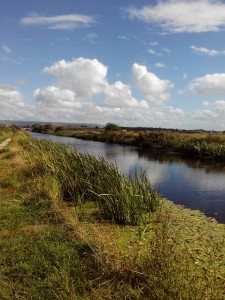 A few things have come my way this Summer to prompt me to focus this month’s blog on how to make a positive impression when applying for an academic research post or PhD studentship. First, I received a message from a PhD graduate in India, asking me for advice on how to apply for a post in the UK. Secondly, I attended a session at the Society for Experimental Biology (SEB)’s main meeting in Prague, entitled ‘Meet the Academics’, where a panel of professors gave early career researchers an insight into what they look for in applicants. Finally, Julie Gould from Naturejobs published a podcast in which she interviewed Chemistry Nobel Prize winners on their views about what makes a good impression on them, when they are looking for researchers to join their research groups.
A few things have come my way this Summer to prompt me to focus this month’s blog on how to make a positive impression when applying for an academic research post or PhD studentship. First, I received a message from a PhD graduate in India, asking me for advice on how to apply for a post in the UK. Secondly, I attended a session at the Society for Experimental Biology (SEB)’s main meeting in Prague, entitled ‘Meet the Academics’, where a panel of professors gave early career researchers an insight into what they look for in applicants. Finally, Julie Gould from Naturejobs published a podcast in which she interviewed Chemistry Nobel Prize winners on their views about what makes a good impression on them, when they are looking for researchers to join their research groups.
Unlike many graduate jobs, which seek candidates who can demonstrate excellent team working, organisational and communication skills, research posts and PhD studentships require an emphasis on a rather different set of capabilities. Academic research is highly specific and demands a high level of concentration and dedication to an on-going question or conundrum. Therefore, academics looking for new people to join their research group, as a postdoc or PhD student, want to see evidence of focus, dedication and a particular passion for getting to the root and essence of a singular problem.
A strong publication record is still a vital component of the assessment process but, as Prof Patrick Hussey (Durham University, UK) revealed during the SEB Meeting session, it’s important not to judge candidates mainly on their papers: “What I look for is personality and enthusiasm”, he said and this was backed up by Prof Craig Franklin (Queensland University, Australia) who advised candidates to make the most of covering letters to express their ideas and creativity and to ‘sell themselves’.
In her podcast, Julie Gould’s questions produced some very valuable advice from Professors Martin Chalfie (University of Columbia), Venki Ramakrishnan (Laboratory of Molecular biology, Cambridge) and Arieh Warshel (University of Southern California), summarised here:
Don’t just send in your CV, relying on your references to speak for you – you need to take charge of your application. Make sure you provide a good reason why you have chosen a particular research group; research what your target lab is doing and read up about their work. Convey to the research group leader what you want to do and express your own ideas. Demonstrate how the lab’s infrastructure and profile will fit with what you want to do. It’s not just about scientific knowledge, it’s to do with you demonstrating motivation and an interest in solving hard problems. You have to show you can take your own initiative and ‘stand on your own two feet’.
And what about the future? During the session at the SEB Meeting, one delegate posed the question, “When is the right time for a researcher to apply for their first tenured academic position?”, to which Prof John Love (Exeter University, UK) advised: “You get a kind of itchy feeling that you want to do something more”, he said. “But one of the difficult things about the transition is realising that you are no longer working just for yourself and your development – now you have to work for other people and your students, to develop their careers and ideas. You may have to let go of certain things…it’s a real growing up process”.
Finally, although an ability to communicate and present yourself and your science is vital nowadays, don’t be tempted to oversell yourself in your application. Be authentic and realistic – remember, whatever you say in your CV, may need to be defended or expanded upon at interview.